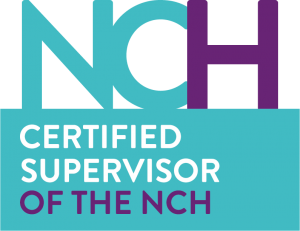Navigating the Social Media Storm: Rethinking the Value of Likes

Introduction
In the fast-paced digital age we live in, social media has become an integral part of our daily lives. It provides a platform for us to connect, share, and express ourselves like never before. However, it's not all sunshine and rainbows. As a hypnotherapist, I have noticed a concerning trend: a growing number of clients seeking help for anxiety related to their social media presence, specifically their pursuit of likes.
The Chase for Likes
In the realm of social media, the coveted "like" has evolved into a virtual currency. It symbolises approval, validation, and even popularity. The more likes one receives, the higher their social standing in this digital landscape. However, what was once a simple gesture of appreciation has now morphed into a complex measure of self-worth for many.
The Anxiety Epidemic
It's not uncommon for individuals to come to my office with a sense of unease stemming from their social media interactions. The pressure to present a curated, flawless image online can lead to a constant need for validation. This pursuit of likes can lead to anxiety, depression, and even a distorted self-image.
The Devaluation of a Thumbs Up
In my sessions, we often delve into the question: has a thumbs up or like simply been devalued and is nothing more than an acknowledgement of a post? The answer may not be as straightforward as it seems. While the act of liking a post has become almost second nature to many, its significance has evolved over time.
Acknowledgement vs. Validation
A like, in its simplest form, is an acknowledgment of a post. It's a way of saying, "I've seen this." However, its true value lies in the intention behind it. Is it a genuine show of support and appreciation, or has it become a mindless scroll-and-double-tap routine?
Understanding the Algorithmic Game
The algorithms governing social media platforms have also played a role in shaping the perception of likes. Engagement-driven algorithms prioritise content with higher interactions, creating a feedback loop where users feel compelled to chase likes in order to maintain visibility. This can lead to a distorted perspective of one's worth based on these arbitrary metrics.
The Illusion of Popularity
The pursuit of likes can create a false sense of popularity. It's important to remember that the number of likes a post receives doesn't necessarily equate to genuine connection or meaningful relationships. In fact, some individuals may find themselves surrounded by a large audience but lacking true, authentic connections.
Rediscovering Authenticity
As a hypnotherapist, I often work with clients to help them rediscover their authentic selves beyond the confines of social media. We explore their values, passions, and strengths, emphasising that true self-worth comes from within, not from external validation.
Reclaiming Control
One of the key strategies in overcoming anxiety related to social media is regaining control over one's digital presence. This may involve setting boundaries, curating a feed that aligns with their values, and being mindful of the time spent online. Remember, it's perfectly acceptable to take a step back from the digital world when needed.
The Power of Mindfulness and Meditation
Mindfulness practices can be invaluable in navigating the social media landscape. Encouraging clients to be present, to engage with intention, and to cultivate genuine connections can shift their perspective from chasing likes to cherishing meaningful interactions.
In Summary
In a world driven by metrics and algorithms, it's crucial to re-evaluate the true value of a thumbs up or like. As a hypnotherapist, my aim is to guide individuals towards a more balanced and authentic relationship with social media. By recognizing that self-worth transcends virtual metrics, we can reclaim control over our digital presence and foster genuine connections in the process. Remember, you are more than the sum of your likes.
If you would like to talk about Social Media driven Anxieties, please do contact me.
Best Wishes,
Dr Iain Lightfoot





